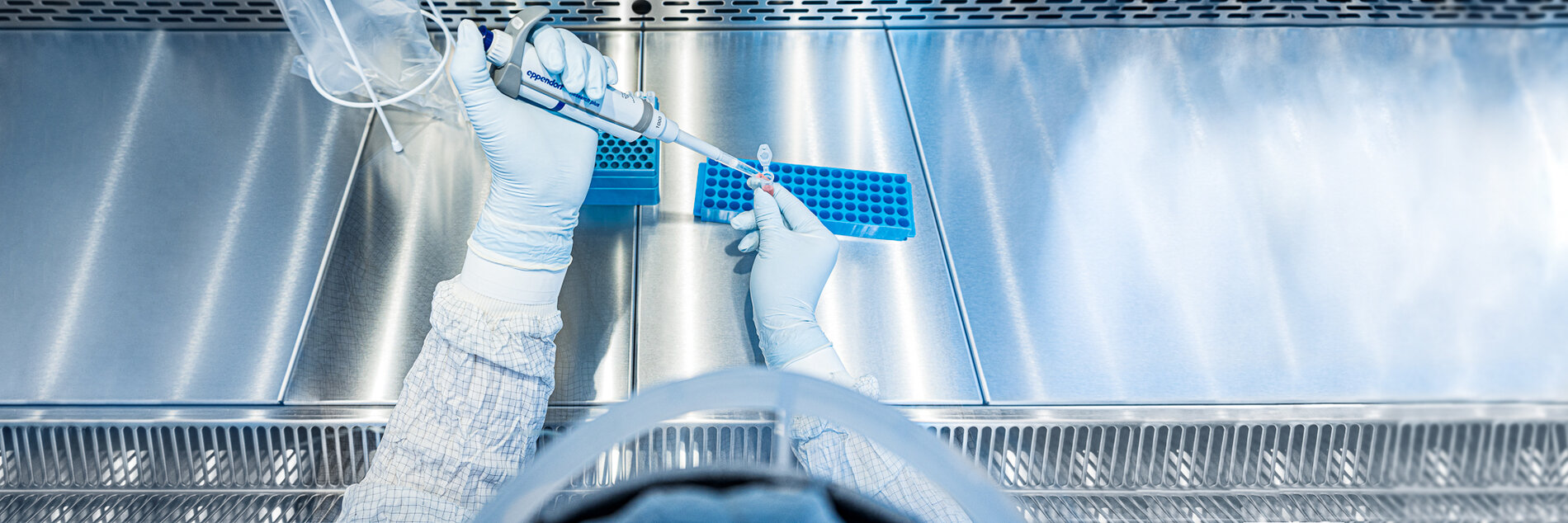Biosafety level 3 (BSL-3) laboratory units
According to national1 and international classifications2,3, pathogens of the risk group 3 comprise highly pathogenic agents for which, in contrast to risk group 4 pathogens, protective or therapeutic countermeasures are available. These include e.g., HIV, Mykobacterium tuberculosis, SARS-CoV-2, highly pathogenic Influenza-A-Virus (H5N1) and the Mpox-Virus (MPXV). Yet, risk group 3 pathogens, which are often of zoonotic origin, pose a considerable threat to the experimenter as well as to the community and live-stock.
In order to diagnose and investigate these agents, the Department of Medical Microbiology, Virology and Hygiene provides two biosafety level 3 (BSL-3) cell culture laboratory units as well as a BSL-3 experimental animal unit. Work under BSL-3 conditions is performed by specially trained scientific and technical personnel.
Amongst others, the equipment of the BSL-3 units allows for the following tasks:
- Diagnosis of risk group 3 pathogens and subsequent treatment of patients based thereupon.
- Molecular characterization and research on risk group 3 pathogens in cell culture.
- Characterization of immune responses triggered by risk group 3 pathogens and the pathogenesis of these agents in vivo.
- Analysis of antiviral therapeutics and vaccine candidates.
Current research projects in the BSL-3 units are supported by the following institutions:
Coordinator:
Research teams
Institute for Virology
Prof. Dr. Sabrina Schreiner-Gruber
Institute for Microbiology and Hygiene
1Technische Regeln für Biologische Arbeitsstoffe, TRBA 462 –Einstufung von Viren in Risikogruppen
2Directive 2000/54/EC of the European parliament and of the council
3WHO Laboratory Biosafety Manual, 3rd edition (2004)

Head:
Prof. Dr. med. Hartmut Hengel
hartmut.hengel@uniklinik-freiburg.de
| Secretary | Administration | Information desk |
|---|---|---|
Kristina Gendrisch Telefon: 0761 270-83480 Telefax: 0761 270-83479 | Gudrun Simpson Telefon: 0761 270-83711 Telefax: 0761 270-83703 | Jutta Schneeberger Telefon: 0761 270-83700 Telefax: 0761 270-83703 |






